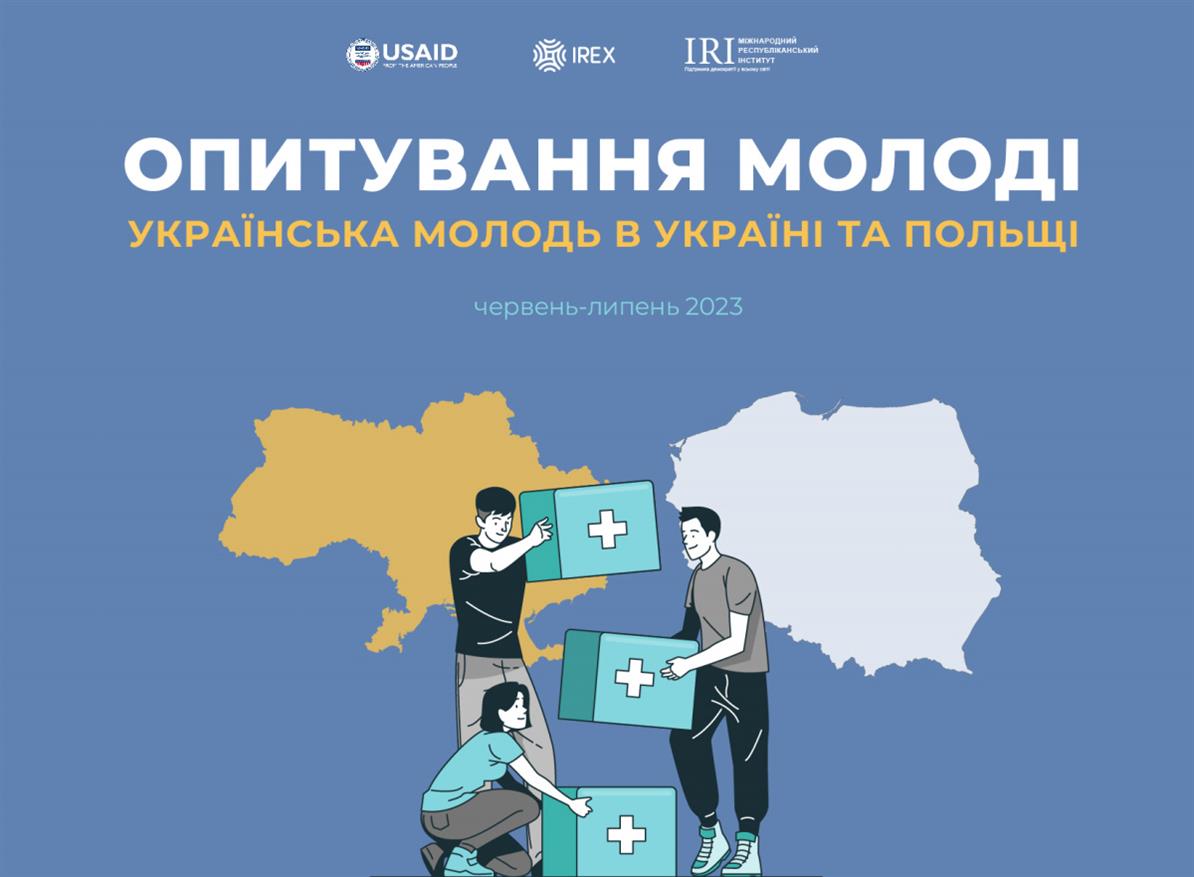More than half of young people in Ukraine would not like to move to another place and want to participate in the reconstruction process. This is evidenced by the results of a national survey of young people conducted by the Center for Analysis and Sociological Research (CISR) of the International Republican Institute (IRI) as part of the USAID “Dreaming and Acting” program. The survey was conducted among young people aged 10-35 who live in Ukraine and moved to Poland after February 24, 2022. The survey covers visions of Ukraine’s future, migration attitudes, employment, civic engagement, attitudes toward minorities, perceptions of corruption, and news consumption.
The future
89% of young people aged 16-35 living in Ukraine see the future of Ukraine as hopeful, while among young people who have moved to Poland, this figure is 81%. Young people living in Ukraine and Poland are almost equally convinced of Ukraine’s victory in the war – 98% and 97% respectively – and want to participate in the reconstruction process.
Migration
65% of young people aged 16-35 living in Ukraine would not like to move to another place. The main reasons why young people do not want to change their place of residence are satisfaction with their current place of residence (44%), family and friends (40%), sufficient financial security for life (20%), and patriotism (15%).
Among Ukrainian youth currently living in Poland, 61% of young people aged 16-35 have not been to Ukraine since moving to Poland. 47% intend to return to Ukraine after the war is over, 19% plan to return soon, and 11% plan to return in some time. 15% of young people do not plan to return at all.
Public activity
A large number of young people donate money to military and social needs – 92% and 76% of young people aged 16-35 living in Ukraine, respectively. Among Ukrainian youth in Poland, 65% said they had volunteered, and 45% made cash donations at least once a month.
Young people are also determined to participate in the process of rebuilding Ukraine. This desire was expressed by 79% of respondents in Ukraine and 83% in Poland.
Profession.
Young people aged 13-15 living in Ukraine named the most desirable professions for themselves: IT sector (17%), doctor (10%), lawyer (9%), designer (8%), cook (6%), military (5%), psychologist (5%).
Among young people who have moved to Poland and found a new job, 58% work for a Polish company, 22% work for a Ukrainian company located in Poland, 12% work for another foreign company, and 2% work remotely for a Ukrainian company.
Attitudes towards minorities
Among Ukrainian youth aged 16-35, tolerance towards minorities such as LGBTQ+ people (from 42% in 2021 to 59% in 2023) and Roma (from 29% in 2021 to 40% in 2023) has increased. The majority of young people – over 94% – say they feel comfortable communicating with people with disabilities, people of different colors, military personnel, and internally displaced persons. Tolerance towards Ukrainians who speak Russian is 69%, and towards same-sex couples is 67%.
Infographic “Ukrainian youth today – 2023 (Ukraine)”
Full results of the survey (Ukraine)
Infographic “Ukrainian youth today – 2023 (Poland)”
Full results of the survey (Poland)
Methodology
The survey in Poland was conducted by the Sociological Group “Rating”, and in Ukraine – by Info Sapiens, commissioned by the International Republican Institute (IRI) and the International Research and Exchanges Board (IREX). The polls were analyzed by the Center for Analysis and Sociological Research (CISR) of the International Republican Institute. In conducting the survey, the Rating Group and Info Sapiens adhered to national and international standards of research ethics.
This material was made possible by the generous support of the American people through the United States Agency for International Development (USAID). The contents of this material are the responsibility of IRI and do not necessarily reflect the views of IREX, USAID, or the United States Government.
The Dreaming and Acting program is funded by the United States Agency for International Development (USAID) and implemented by IREX in partnership with Building Ukraine Together (BUR), the Center for Corporate Social Responsibility Development (CSR Ukraine), Making Cents International (MCI), the International Republican Institute (IRI), and the Zinc Network.


Leave a Reply